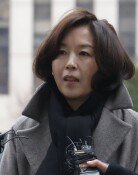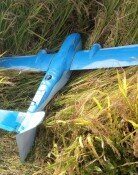Increasing Suspicions over Kim Woo-jungs Fleeing Overseas
Increasing Suspicions over Kim Woo-jungs Fleeing Overseas
Posted June. 18, 2005 04:32,
What was the reason behind former Daewoo Group Chairman Kim Woo-jungs urgent flight from Korea to Tokyo, which seemed like an attempt to flee overseas, on October 21, 1999?
According to the Central Investigation Department of the Supreme Public Prosecutors Office on June 17, the former tycoon adhered to his previous position, saying, I left South Korea due to the creditors committee and Daewoos executives suggestion.
An official of the investigation team said, The reason behind Kims leaving the country has something to do with the process of dissolving the Daewoo Group, adding, We will probe further into the background of Kims fleeing overseas.
In an interview with the U.S. business magazine Fortune in January 2003, right before Roh Moo-hyun took office, the former tycoon insisted, Former President Kim Dae-jung telephoned me and proposed that I go abroad for a while before Daewoo worked out.
In the first investigation into allegations surrounding him after returning home on June 14, Kim stated, The creditors committee and Daewoos executives in October 1999 suggested fleeing overseas.
If the creditors committee induced Kim, a delinquent debtor, to go abroad, the government could not be free of the process of Kims fleeing, because the creditors committee itself was controlled by the governments intentions. Since Kim believed that he would be in charge of the management of Daewoo Motors right before he left the country, he possibly followed the governments message conveyed through the creditors committee.
Former Daewoos executives explained that Kims interview with Fortune did not indicate that he had heard the suggestion of leaving the country directly from former president Kim, but the suggestion of leaving the country had been conveyed through the creditors committee.
It was on July 19, 1999 when Daewoo Group announced a measure to secure its liquidity and officially entered a phase leading to its dissolution. At that time, Lee Gi-ho served as Presidential Secretary for National Economy, and Lee Hun-jae, who served as Deputy Prime Minister and Minister of Finance and Economy until recently, was Chairman of the Financial Supervisory Commission. The post for Minister of Finance and Economy was filled by Rep. Kang Bong-kyun from the Uri Party.
Then-creditors committee consisted of a total of 70 institutions, including Daewoos major creditor bank, Korea First Bank. In fact, these institutions were under the supervision of the Ministry of Finance and Economy, or the Financial Supervisory Commission, and Cheong Wa Dae.
jin0619@donga.com




![‘건강 지킴이’ 당근, 효능 높이는 섭취법[정세연의 음식처방]](https://dimg.donga.com/c/138/175/90/1/wps/NEWS/IMAGE/2026/01/18/133181291.1.jpg)


